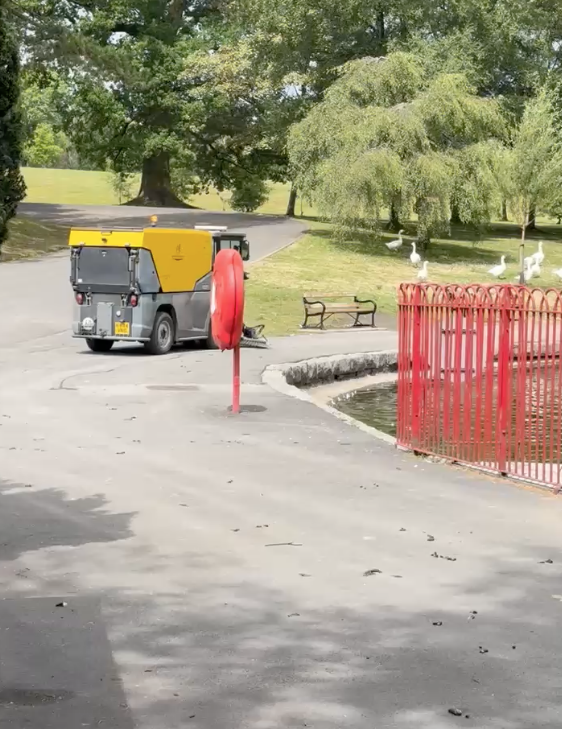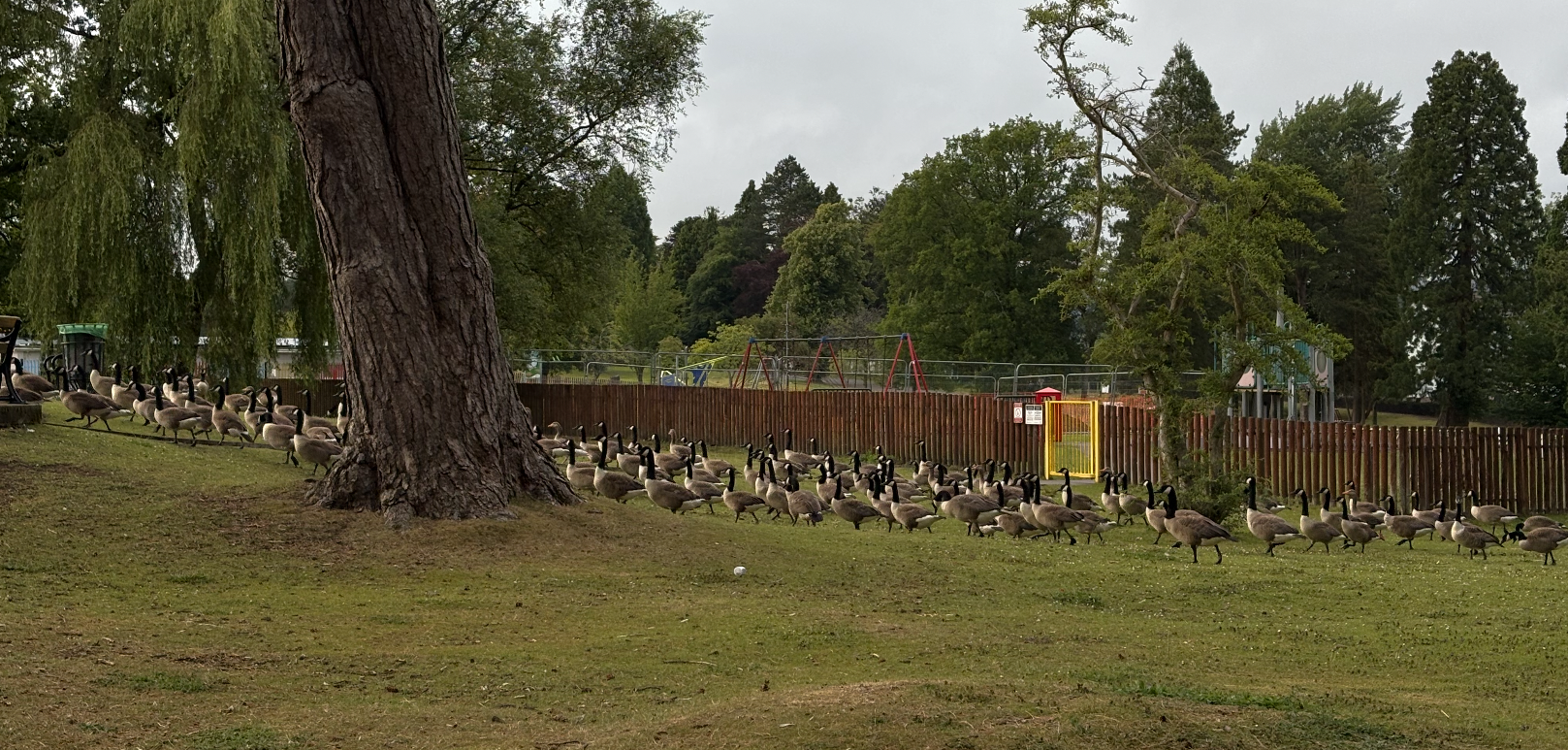A Victorian vision undermined by unchecked wildfowl pollution
Aberdare Park, once a proud jewel of the Cynon Valley, designed during the Victorian era as a place of civic pride, recreation, and public health, is now blighted by a chronic and worsening problem: goose pollution.
Originally created as part of the Victorian public health movement, parks like Aberdare’s were envisioned as sanctuaries for urban populations, providing fresh air, green space, and a place of beauty for industrial towns. Today, however, visitors are greeted not by tranquillity, but by paths, grassed areas and even children’s play areas covered in goose droppings.
Residents estimate that over 80 Canada geese currently inhabit the park, alongside other waterfowl. Photos show geese wandering freely around the splash pad area, the children’s playground. Despite years of public complaints, Rhondda Cynon Taf (RCT) Council has failed to take effective action.
A Public Health Risk Ignored
Canada geese excrete frequently, up to 2kg per bird daily, and their droppings pose well-documented health risks, particularly in areas of human recreation. Goose faeces can carry bacteria such as E. coli, Salmonella, and Campylobacter, as well as parasites like Giardia and Cryptosporidium, all of which can lead to gastrointestinal illness and other infections in humans, particularly children.
When geese occupy parks and water features, faecal contamination becomes inevitable. This is especially concerning in Aberdare Park, which includes a children’s splash pad, where bare feet and hands come into direct contact with contaminated ground, and a popular lakeside café with outdoor seating. As one resident put it: “The paths are slick with droppings. We’ve seen children picking up things from the floor where geese have just walked through.”
Cleaning Practices in Question
Although the council has attempted to mitigate the issue by sweeping the lakeside paths with a mechanical road sweeper, local observations indicate that this is often done without water suppression. This creates airborne dust laden with faecal matter, potentially spreading disease, not to mention passing through crowded areas near the café and playground without visible public safety precautions.

Residents have repeatedly asked whether risk assessments or method statements have been produced for these operations. The Council’s response in July 2024 was that cleaning of equipment and facilities is only done reactively and not as part of routine maintenance:
“Cleaning of equipment to remove animal waste is not a common occurrence… We do not have a recorded pattern of cleaning as this would be unworkable…”
No Dogs Allowed – But Geese Welcome?
In a further contradiction, RCT Council enforces a strict no-dogs policy on sports pitches and has issued fines to dog owners. Yet Canada geese are now regularly seen fouling the Ynys Sports Fields. These double standards have not gone unnoticed by residents, who point out that goose droppings pose a greater and more persistent contamination threat.

Lack of Transparency and Oversight
The Council was also asked about the lake’s aeration system, potentially important for controlling algae and discouraging excessive goose presence, but responded that no information was available due to the relevant officer being on long-term leave.
This raises questions about how the Council is maintaining park infrastructure, how decisions are made in their absence, and how the park still qualifies for its prestigious Green Flag Award. Who inspected the park, and were the conditions reported by residents taken into account?
Solutions Ignored
Simple public health measures could significantly reduce the problem. These include:
· Banning or restricting public feeding of wildfowl (currently still permitted).
· Installing deterrents or exclusion zones to keep geese out of children’s play areas and sports fields.
· Increasing cleaning frequency and adopting more sanitary methods.
· Rehoming excess wildfowl and redirecting them to less sensitive wetland areas such as Cwmbach Wetlands, Abercwmboi Lake, or Pwll Waun Cynon.
Instead, the Council appears to be relying on ad hoc sweeping and minimal interventions while the problem visibly worsens.
Residents Demand Action
The public has taken to social media in increasing numbers, sharing photographs of faeces on benches, play equipment, and grass where children play. A growing number believe that enough is enough.
Aberdare Park remains a community asset with deep historical significance—but only if it is maintained in a safe, clean, and dignified condition.
Sent July 24: No response from Rhondda Cynon Taf Council yet


